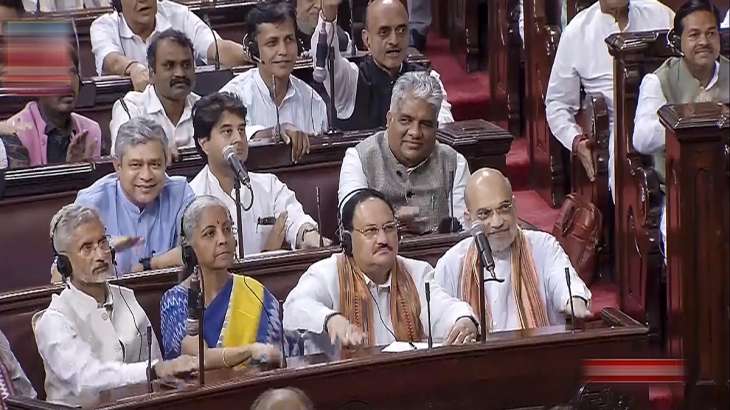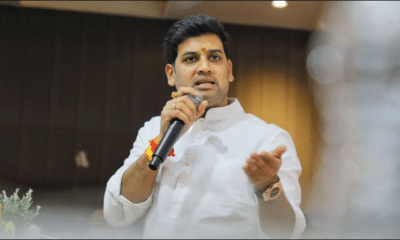Democracy
Delhi Services Bill Passed in Parliament Sparks Constitutional Concerns: Supreme Court to Weigh In?
In a significant development that has raised eyebrows among ordinary people, legal experts and political circles, the Modi government, with its brute majority in Indian Parliament, yesterday passed the contentious “Delhi Services Bill.” While the bill quickly went through Lok Sabha smoothly, in the upper house, this was possible only with the BJP getting support from parties like BJD and YSRCP, who chose to align with the BJP on an essential subject of federalism.
The bill aims to grant more administrative powers to Delhi’s Lieutenant Governor (LG), sparking heated debates over its constitutionality and potential implications for the capital city’s governance. As the controversy deepens, the Supreme Court is set to play a crucial role in determining the bill’s fate. It has been widely criticised by many in the Delhi government that the LG, at the behest of the central government, has been interfering with the daily functioning of the elected government. This bill puts the power in the hand of the Modi government through the LG.
The Delhi Services Bill Overview
The Delhi Services Bill, introduced by the central government, seeks to expand the LG’s authority by granting him primacy over key administrative functions in Delhi. Under the bill’s provisions, the LG will have the power to make decisions on various service matters, bypassing the elected government of the National Capital Territory (NCT) of Delhi. It marks a significant departure from the existing administrative structure, where the Delhi government had some jurisdiction over services.
Constitutional Concerns and Political Turmoil
The passage of the Delhi Services Bill is bound to ignite a fierce political battle between the ruling Bharatiya Janata Party (BJP)-led central government and the Aam Aadmi Party (AAP)-led Delhi government. The AAP, which is in power in Delhi, has vehemently opposed the bill, viewing it as an encroachment on its democratic mandate and an infringement on the principles of federalism.
Critics argue that the bill violates the 2018 Supreme Court verdict, which upheld the elected government’s power to make decisions on services such as the transfer and posting of bureaucrats. The Amendment Act was passed by the Central government after another five-judge Constitutional Bench of the Supreme Court in 2018 held that except for issues of public order, police and land, the Lieutenant-Governor must follow the “aid and advice” of the elected Kejriwal government.
Supreme Court’s Role and Legal Implications
Given the potential constitutional concerns raised by the Delhi Services Bill, legal experts anticipate that the matter will inevitably reach the doorstep of the Supreme Court. The apex court will be tasked with interpreting the constitutional provisions related to the powers and jurisdiction of the LG and the elected government in Delhi. And when such a time comes, the Court’s decision will have far-reaching implications, not only for Delhi’s governance but also for the broader dynamics between the central government and state governments across India. The verdict will clarify the delicate balance between the elected representatives’ authority and the constitutional position of LGs in union territories.
Public Sentiment and Way Forward
The passage of the Delhi Services Bill has sparked public debates, with citizens expressing their opinions on the bill’s potential impact on Delhi’s governance and democracy. Many fear that granting excessive powers to the LG might lead to conflicts and hamper efficient decision-making. In contrast, others argue that clear demarcation of powers is essential for smooth administration. In a press conference immediately after the law was passed, CM of Delhi, Arvind Kejriwal called it unfortunate and a grave injustice perpetrated on the people of Delhi. He also added that Narendra Modi, who himself in the past was seeking votes in Delhi, though a promise of full statehood to Delhi, has now instead thrust such a law upon Delhi that undermines the existing status.
As the legal battle unfolds, stakeholders will closely watch the Supreme Court’s proceedings and await its verdict. The Court’s decision will be pivotal in addressing the constitutional concerns and restoring clarity on the allocation of powers between the LG and the elected government in Delhi.
An Ongoing Tug-of-War
The Delhi Services Bill’s passage can be seen as a constitutional tug-of-war between the central and Delhi governments. The Supreme Court’s intervention will provide legal clarity and settle the debate over the bill’s constitutionality. As the nation waits to see how this plays out, the future of Delhi’s governance and the principles of federalism hang in the balance.










































